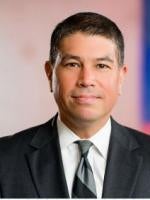On December 4, the House of Representatives passed legislation cracking down on illegal robocalls. After months of negotiations between key members of the House Energy & Commerce Committee and the Senate Commerce, Science and Transportation Committee, the House approved the Pallone-Thune Telephone Robocall Abuse Criminal Enforcement and Deterrence (TRACED) Act by a vote of 417-3. The bill is named after its sponsors, Rep. Frank Pallone (D-NJ) and Sen. John Thune (R-SD), and would require, among other things, carriers to block robocalls without charging extra fees to consumers. The Senate is expected to act before the holiday recess, but the manner in which the upper chamber will pass the bill is unclear.
Unwanted robocalls are already illegal under federal law. In 1991, Congress generally outlawed automated calls to consumers without prior consent when it passed the Telephone Consumer Protection Act (TCPA). Robocalls that are disguised as originating from known, trusted numbers — a practice known as “spoofing” — are also in violation of the Truth in Caller ID Act. And most unwanted robocalls are in violation of the Telemarketing and Consumer Fraud and Abuse Act, which established the Do Not Call Registry in 2003 under the Federal Trade Commission’s (FTC’s) Telemarketing Sales Rule. Such laws, however, generally do not deter scammers and other bad actors, who view the occasional litigation or fine as the cost of doing business. Notwithstanding numerous enforcement actions by the FTC and the Federal Communications Commission (FCC), as well as the TCPA’s private right of action, fraudulent robocalls remain a nuisance to consumers. According to a YouMail report, more than 49 billion robocalls have been placed this year — with 5 billion plaguing consumers just in the month of October. In FY 2019, the FTC received 3.78 million complaints about robocalls, and the FCC estimates that they cost the American economy $3 billion a year from lost time alone, not counting fraud or other monetary damages. Because robocalls are relatively easy to generate with a computer and can originate from anywhere around the globe, enforcement of existing law is akin to a game of whack-a-mole. The FTC concluded that a technological, network-based solution, not enhanced enforcement, was the only effective means of stopping unwanted robocalls. The TRACED Act largely adopts this approach.
Specifically, the TRACED Act amends section 227(b) of the Communications Act by directing the FCC to require voice service providers to adopt call authentication frameworks that would allow them to identify and block robocalls. For voice over IP (VoIP) networks, providers are required to adopt a specific framework of interconnected standards known as the Secure Telephone Identity Revisited (STIR) standard and the Signature-based Handling of Asserted Information Using Tokens (SHAKEN) standard. STIR/SHAKEN authentication will act as a fingerprint, ensuring that callers are who they say they are, to reduce spoofed calls. For non-IP network voice traffic, providers must “take reasonable measures to implement an effective call authentication framework.” This dual obligation must be met within 18 months, but the FCC may delay such implementation “for a reasonable period of time” if it finds that certain voice providers face “undue hardship,” a case most likely to arise for carriers using legacy non-IP networks. The FCC is directed to report back to Congress on industry implementation of these call authentication frameworks and the efficacy of their use. Within three years of enactment and every three years thereafter, the TRACED Act directs the FCC to assess the efficacy of call authentic frameworks, including STIR/SHAKEN, and revise or replace them if the Commission determines such actions to be in the public interest. Existing federal enforcement authority is beefed up with new forfeiture provisions, and an Interagency Working Group, led by the Department of Justice, is tasked with studying the efficacy of government enforcement of provisions of the Act.
The TRACED Act further prohibits providers from charging subscribers an extra line item fee for the adoption of call authentication technology, though the bill is silent on their ability to bake implementation costs into their base rates. The bill also creates a safe harbor that shields voice providers from liability when they unintentionally or inadvertently block or misidentify calls, so long as the provider used “reasonable care” and relied on the mandated call authentication framework. Lastly, in addition to the Commission establishing a Hospital Robocall Protection Group to help hospitals combat robocalls, the bill directs the FCC to conduct a host of studies and initiate numerous rulemakings to assess and possibly modify access to available telephone numbers, to establish a registration process by which a private consortium can investigate and determine the origins of illegal robocalls, and to protect consumers from spoofing and “one ring scams.”
Legislating a solution to the robocall problem has long been on the Congressional agenda. Although the dislike of unwanted and illegal robocalls crosses party lines, members of Congress could not iron out disagreements between Republicans and Democrats and differences between the House’s Stopping Bad Robocalls Act and the Senate’s TRACED Act. Points of disagreement between the House and Senate approaches that were resolved in the consensus bill include a four-year statute of limitations, the creation of a safe harbor for blocked calls under certain conditions, and other requirements that were addressed in the House bill but not in the Senate bill and were included in the consensus legislation. Notably, the consensus bill leaves out wording from the House bill directing the FCC to clarify several important TCPA definitions, including the definition of an “automatic telephone dialing system.” It also does not include, as the House Bill did, a clarification of the meaning of a “called party.” The FCC, however, has already teed up these definitional issues and is likely to address them in upcoming proceedings.





 />i
/>i

